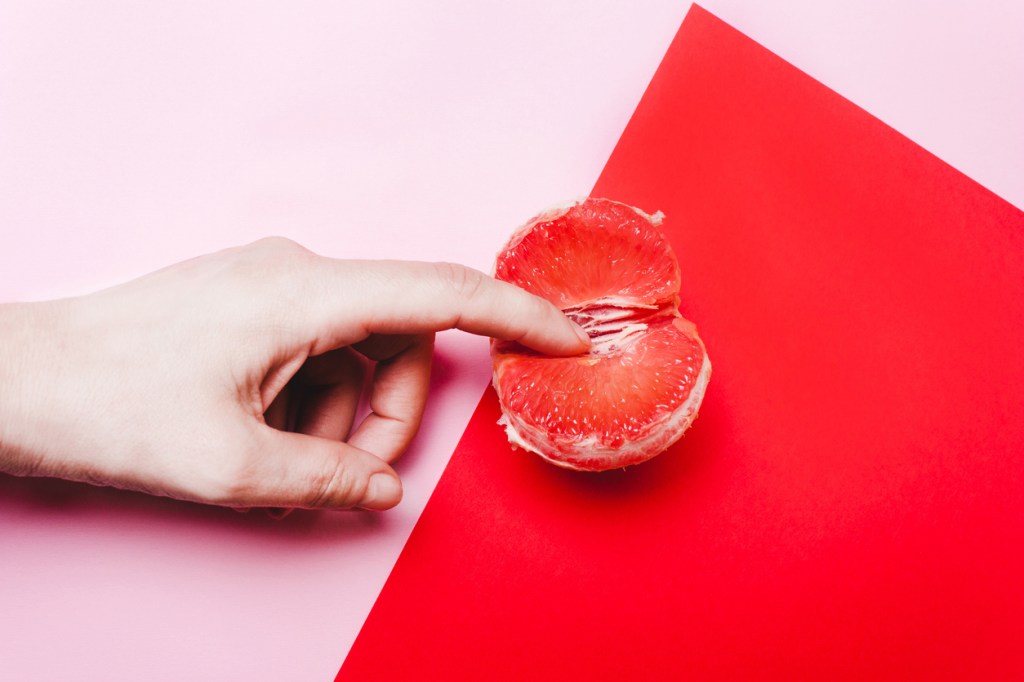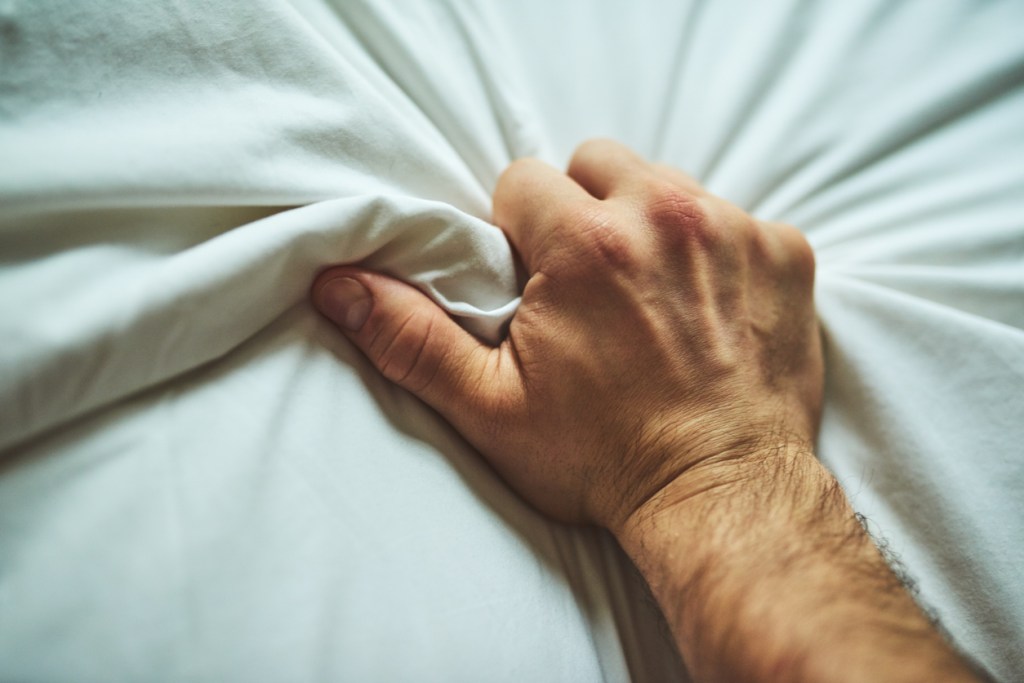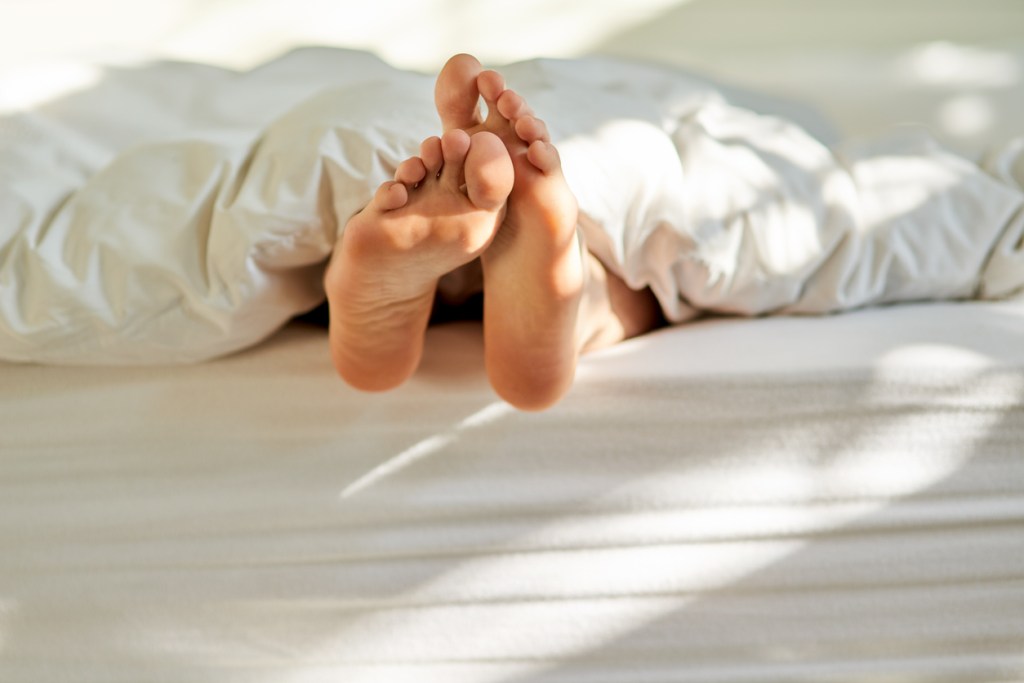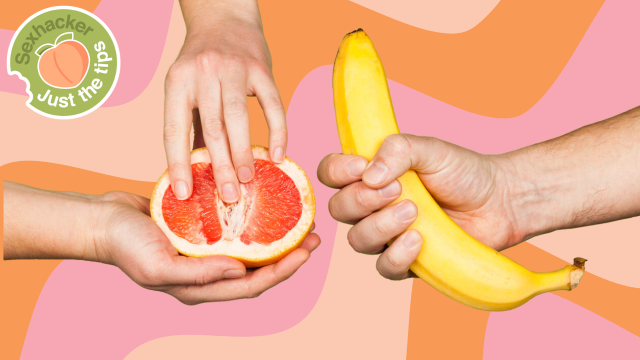Whether it’s regularly talked about or not, masturbation is something that many people think about, and often. Because, well… it feels good. But beyond it feeling pleasurable, masturbation actually has a lot of benefits to your overall well-being that are often overlooked.
Despite it being something loads of people take part in (and enjoy), masturbation is still quite a taboo topic. According to Lovehoney’s research, around 25 per cent of Aussies feel shame associated with masturbation and 51 per cent consider self-love to be an embarrassing topic to discuss.
You might be starting out in your masturbation journey or just looking to switch things up for yourself, either way, educating yourself about masturbating is something you should take advantage of. Having the power to take control and feel your body is a beautiful thing.
Sexual wellness website Delicto recently shared a list of some of the most regularly Googled questions about masturbation, so Lifehacker Australia chatted with Lovehoney’s sex and relationship expert, Christine Rafe and Georgia Grace, to help answer some of them.
So, let’s get it on.
6 frequently asked masturbation questions, answered

1. Is masturbation ‘normal’?
First things first, a lot of us have grown up with rather outdated beliefs that masturbation isn’t a normal experience and that if we engage with it, negative things will happen.
However, according to sex experts, it’s a completely ‘normal’ thing to do.
“Despite what we may have been taught, masturbation is completely normal and a very healthy form of self-care and sexual expression,” Rafe said. “While many of us have been conditioned to see masturbation as different from other ways of seeking pleasure, we can consider masturbation the same as any other type of pleasurable or self-care activity such as non genital massages, walking, dancing etc.”
“All are completely normal and can be enjoyed and celebrated. We deserve pleasure in whatever form it takes,” Rafe added.
Grace actually brought up an interesting point which is that when it comes to sex questions, we too often want to think of things as ‘normal’.
“Normal is such a common term used in sex questions and I think as a whole everyone just wants to feel really normal about their sex life, about their desires, about the way they touch themselves,” Grace explained.
“But if we’re looking what normal actually means it’s ‘Is it common? Is it something that a lot of people do? Is it safe?’ Yeah, it is all of those things but it’s important for the individual to decide and to learn about what their idea of a normal masturbation practice looks like for them.”
2. Is there any right way to masturbate?
No two people are the same, so you can’t really say that there’s one ‘right’ way to masturbate.
According to Grace, there’s no right way to do anything when it comes to sex as it’s such an individual experience.
Obviously, there are a few things that are important in sex and masturbation, like consent, not inflicting unwanted pain or causing bodily harm. Other than that, it’s an open-ended experience.
However, both Rafe and Grace did give some tips on how to switch things up in your masturbation if you need some change.
- Change the environment: If you’re watching the same kind of porn and using the same hand, laying in the same position every time you masturbate, try to find new locations, pressures, and stimulation points to add variety. This, according to Grace, also allows your brain to have different ways of anticipating stimulation to orgasm with a partner.
- Lube it up: As always, whether it’s solo or partnered, lube will be your best friend. Use water-based if you’re playing with toys or using condoms.
- Take it slow and explore your body: Rafe suggests that if you’re masturbating for the first time, go slow and explore all the parts of your erogenous zones, including nipples, neck, thighs, genital and anal areas.
- Vulva and clitoral pleasure: “If you have a vulva, start with an external massage and touch around your outer and inner labia, and either broad or targeted stimulation of your clitoral glans (located at the top of your vulva almost at your pubic bone). The clitoris holds more nerve endings and therefore potential for pleasure than any other part of the human body, and stimulating the clitoris externally also increases pleasure potential with internal vaginal stimulation,” Rafe said.
- Penis pleasure: “If you have a penis, explore the tip, shaft, testicles, perineum (the area between the testicles and anus) and the anus. All are sensitive areas with the capacity for different pleasure sensations,” Rafe said.

3. How much is too much?
It can get easy to get carried away with self-pleasure sometimes, but it’s important to know how much masturbation is too much.
Basically, you might be masturbating too much if it’s getting in the way of your everyday life and functions.
“It’s too much masturbating if you aren’t eating, sleeping, going to work and seeing your friends,” Grace said. “If the habit is really affecting everything you need to be a connected, relatively healthy human being who drinks water.”
“However, I can’t give a number to [how often you should masturbate]. What I might do is suggest the amount of practices people should be doing if they have a specific goal. I think it’s more useful for the individual to think about what it is an amount that feels fulfilling and fun for them.”
Rafe also shared a similar sentiment, saying that there’s no set frequency or amount of masturbation you should have, as long it feels right for you.
“If you are finding that the frequency or type of masturbation is impacting your ability to work, maintain relationship(s), is causing financial strain and/or is impacting your mental or physical health, then you may want to speak to a sex therapist or coach to discuss this further,” Rafe said.
4. Can you masturbate without porn?
There’s a lot of conversation about how much (ethical) porn can help assist people with masturbation. Some people find it useful, and others want to find ways to pleasure themselves without it.
As Grace mentioned, porn is actually one of the first places where marginalised communities can see themselves engaging with their bodies and sex.
“I’m definitely not anti-porn, I think [ethical and consensual] porn is incredible for many reasons. It is often the first time that queer people can see themselves having sex and learn about their sexuality, it can be just fun, you feel arousal building in your body and your orgasm. It can give us insights into what we might be curious about, or it can help us explore our fantasies in a way that we may not want to do in real life,” Grace said.
“However, it can really have an impact on our sexual experiences. So if [you’re] noticing that your porn habits are now having an impact on how easily you can build arousal in your body or sexual expectations of your body or your partners, then we might revisit and come back to a mindful masturbation practice where you’re just looking at sensation and your body to build arousal rather than solely relying on external stimulation.”
Although Rafe doesn’t think porn is inherently ‘bad’, she does think using it every time you masturbate can make you lazy to other forms of arousal.
“Porn is highly visual, so if you’re a frequent porn watcher you may be de-conditioned to the other senses that support arousal such as physical sensation, smell, taste and sound,” Rafe said.
“If you’re someone who is used to using porn every time you masturbate, you might want to alternate between using porn and bringing awareness to the other senses during masturbation. Audio-erotica (audio pornography without visual stimulation) is also another great way to support arousal and bring awareness to the sense of sound without visual.”

5. What are the positive benefits of masturbation?
Apart from feeling good, there are actually a lot of positive health benefits to masturbation, meaning it’s something that all adults should engage in if they’re able to.
Lovehoney’s research actually found that over 50 per cent of Aussies masturbate for stress relief, while one in two will masturbate as a sleeping aid.
It also found that a whopping 90 per cent of Aussies say that masturbation has a positive impact on mental health, with over a quarter saying it increases their happiness.
Interestingly, the research also found that more than one in ten Australians will masturbate to help relieve pain.
Here are all the different health benefits associated with masturbation, according to both Rafe and Grace.
- Those with a penis who ejaculate frequently (one study citing 21 times per month) have a lowered risk of prostate cancer to those who ejaculate less than 7 times a month
- Masturbation releases hormones like dopamine, oxytocin and endorphins to boost your mental and physical health. This can include helping with headaches and pain symptoms (even those associated with pregnancy)
- Womanizer and Lunette found through their ‘Menstrubation’ study that regular masturbation can reduce menstrual symptoms such as abdominal pain and cramping, bloating, breast tenderness and support increased energy during the menstrual cycle
- Masturbation can teach you a lot about your own pleasure and sensation and can help us learn about what we’re wanting and need. It also helps give insight into our bodies and how they work
Apart from masturbating helping your own physical and mental health, it can also be a way to learn about your partner too.
“Mutual masturbation is one of the most effective ways to learn about how a partner touches themselves and what feels good to them. So it can be really hot and fun and arousing, but it can also be an educational tool where you’re like, Oh, you’re touching your body in that way. And you’re moving with this technique and you’re starting slow and building up and moving away from orgasms,” Grace explained.
6. Should you eat anything afterwards?
Sex can often feel like a workout, and sometimes, so can masturbation.
Just like you would with exercise, is there anything you need to eat or drink afterwards to replenish any lost fluids?
“There’s nothing that you need to eat after masturbating, but if you’ve felt that your masturbation session was like exercise, it would be useful to make sure you’re hydrated and nourished afterwards,” Rafe said.
Again, masturbation is an individual experience, so if you feel like you need a snack afterwards, you go and get yourself a snack.
“Mindfully eating something delicious such as a fresh piece of fruit, a warm herbal tea or a square of dark chocolate and allowing yourself to really feel, smell and taste the food/drink,” Rafe said.
By this point, we hope that you’ve taken a lot away and have learnt some new things about masturbation that you might not have previously known.
So, take on the tips that Rafe and Grace gave us and get to know your body on a more intimate level. You won’t regret it, it seems.
Happy pleasure-seeking! And if you want more, check out the most-Googled sex positions here next.

Leave a Reply
You must be logged in to post a comment.